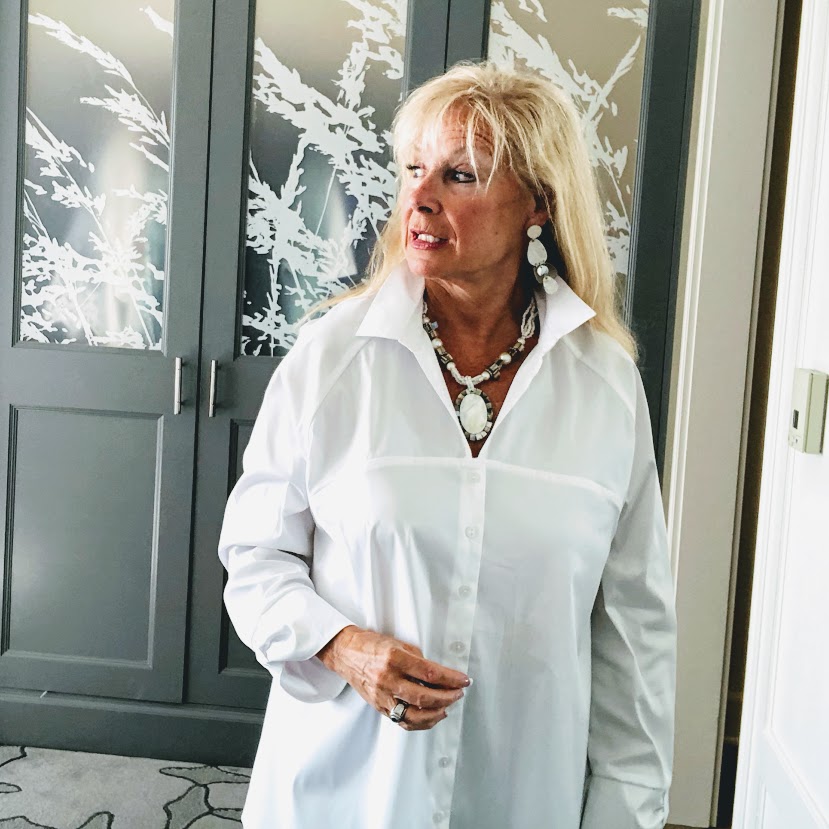Midlife Women and Suicide is on the Rise

Ladies, did you know that September is National Suicide Prevention Month? I have participated in fundraising events for raising awareness at my local women’s gym because members’ child completed suicide. Still, when fashion designer Kate Spade took her life this summer, another sad statistic reared its ugly head. Women over 50 are becoming the largest group to complete suicide.
Midlife Women and Suicide on the Rise
I have researched menopause for Wellness Wednesday blog posts and I have written about menopausal effects on our hearts and the hair loss and dryness associated with estrogen loss. However, it’s alarming to see the evidence that some women are experiencing severe depression during menopause.
Depression, anxiety, mood swings, and panic attacks are ubiquitous in perimenopause and menopause and are often be related to an imbalance between progesterone and estrogen. Menopause affects not only our bodies but our emotions and brain functionality.
For example, there is a correlation between the estrogen-progesterone changes that come with menopause and increased depression. A 2008 study in Menopause: The Journal of the North American Menopause Society found that “late menopausal transition” was significantly related to depressed mood. Another study found that menopausal women are three times more likely to develop depression than premenopausal women. Going even further, a study of menopausal suicide attempters (as opposed to mere depression sufferers) in Iran in 2012 concluded that “the relationship between the female suicidal attempt and the feminine hormones is [emphasis added] a reality and cannot be renunciated.”-Sheila Weller, Next Tribe

What are the Signs of Depression?
Signs of depression can include one or more of the following: sadness, loss of energy, feelings of hopelessness or worthlessness, loss of enjoyment, difficulty concentrating, uncontrollable crying, difficulty making decisions, irritability, increased need for sleep, insomnia or excessive sleep, a change in appetite causing weight loss or gain, and thoughts of death or suicide or attempting suicide.
Life changes add more stress, especially if we face the death of a partner, divorce, loss of a job, financial issues, or the addition of caring for our aging parents. As women age, we go through the emotional process of a life review (measuring what we’ve done in our life as mortality approaches), which can heighten sadness. Social connections can wane with age, so isolation is a common experience in later life.
Suicidal Awareness can help identify at-risk women, which include:
- A person who says they want to die or kill themselves.
- Having a plan for killing themselves.
- Describing feelings of hopelessness and having no reason to live.
- Talking about feeling trapped or having unbearable pain.
- Talking about being a burden to others.
- Increased use of alcohol or drugs.
- Reckless behavior or acting anxious or agitated.
- Sleeping too much or too little.
- Isolating themselves.
- Displaying extreme mood swings.
How does living a healthier lifestyle help with Menopause and Depression?
Women need to keep a healthy diet and get plenty of sleep during menopause.
“A dietary pattern characterized by a high intake of fruit, vegetables, whole grain, fish, olive oil, low-fat dairy and antioxidants and low intakes of animal foods was apparently associated with a decreased risk of depression. A dietary pattern characterized by a high consumption of red and/or processed meat, refined grains, sweets, high-fat dairy products, butter, potatoes and high-fat gravy, and low intakes of fruits and vegetables is associated with an increased risk of depression.”- Harvard Health
Sunshine and Exercise
Getting a good 30 minutes a day of natural sunshine also boosts melatonin – and exercise releases mood-pleasing endorphins. Hormone therapy can also be used to treat depression caused by menopause. For women in perimenopause, hormone therapy and psychotherapy may be the only elements needed for successful treatment. Women who never had a depressive episode before entering menopause are also likely to respond positively to hormone therapy. However, some doctors recommend adding an antidepressant to the treatment plan if the depression is severe or the patient has had depression in the past.
Be Socially Active
Be socially active and spend time outside your house. Surround yourself with positive, supportive, and loving people to help you through difficult times. Getting dressed up and leaving your home is one of the first steps to beating depression.
Get Help
Talk to your doctor if you are experiencing symptoms of depression and if you want to make any changes to your lifestyle.
We all need to bring this issue out of the shadows and have open conversations about this transition and the link to mental illness. Let’s permit women to stop suffering in silence.
If you are feeling suicidal, I urge you to get help or pick up the phone and call the National Suicide Prevention Lifeline
Because I care about you, pretending you live a perfect life because you worry about what others think about you will not help you. As we learned about Kate Spade and the other women we thought led extraordinary lives but still ended their life to end their pain., we didn’t do enough to talk about it. Kate Spade lived with bipolar disorder, and I have dear friends who live with bipolar disorder. We should never stop talking about mental illness and how menopause may change our mental health at midlife.

Thank you for stopping by today!







A very insightful and helpful post Robin. Thank you for reminding us to look out for those who might be in a bad place. One of my good friends who lives in the west of Ireland suffers dreadfully.
Thank you Kellyann for commenting today on an uncomfortable subject.
I have met many women on instagram who are very lonely and depressed and have suggested to them to seek medical help.
I know depressed people have a hard time getting out into the world and rely on the internet for connecting with others.
We do need to check on people we love when we feel they may be depressed and be there for them.
Hugs,
Robin
Robin, such a great message and one we need to hear again and again. I think it’s easy for depressed people to isolate themselves now more than ever since the world is so digital. We need to make it a point to check on our friends and family members regularly and ask the tough questions, it can save a life.
xo,
Kellyann